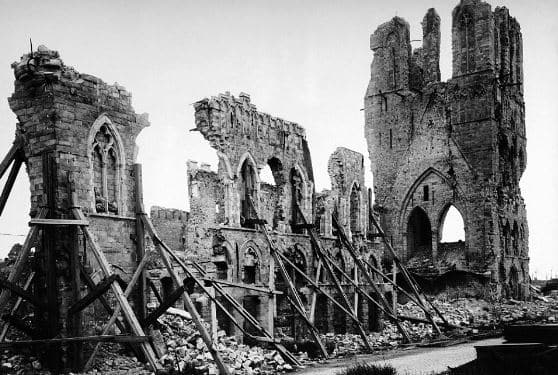
As the Ukraine conflict continues, a basic question with ethical dimensions has risen and will need to be answered soon by European politicians: how moral it is to support Ukraine “as long as it takes” against the necessity of protecting your own citizens’ welfare and the constitutional duty to follow your people’s mandate which is the basic rule of democracy?
European unclenched and blind support for US policies in the Ukraine conflict, and the dire economic and political consequences it has unleashed, is bringing the continent’s political architecture to a defining moment which may only be resolved through the end of the European Union (EU) regime and the emergence of a new and still undefined new political settlement.
Betting on Russia’s defeat and Vladimir Putin’s demise, the EU has followed the US-led economic war against Russia via sanctions which now far outnumber those directed against any other country on earth but nevertheless have failed. On the other hand, beyond the adverse impact on consumers and small/medium businesses caused by rising energy bills, general inflation, and the prospects of serious heating scarcity this winter, EU’s sanctions against Russia are causing irreparable damage to the continent’s economy.
Energy intensive manufacturing companies are going bankrupt or moving overseas attracted by lower energy costs, prompting business closures, a deterioration of trade balances, a severe erosion of the Euro currency, job losses, the destruction of the continent’s manufacturing competitive advantage built over decades and an inevitable and severe recession in the coming months. The overall political and social impact of these events on the continent’s future is still unclear as there is no escaping to its lack of natural resources.
EU’s decisions in support of Ukraine have purportedly been taken in the name of democracy, the rule of law and western values and against a military action by Russia considered unprovoked and illegal. The EU appears to have been also concerned about the unsettling of post-World War II borders – or rather the national frontiers that followed the end of the Cold War – and has expressed unfounded fears that Russia’s actions in Ukraine are the prelude for further aggression in Europe.
Deep down, through its actions against Russia the European leadership psyche seems to have had a cathartic release, unleashing an old Russophobia manifested in Europe over decades if not centuries, melting together Czarist Russia, the Soviet Union and the Russian Federation in an effort to portray and convince the average European about an inherent Russian malignity that needs to be rooted out once and for all.
In its one-sided defence of Ukraine, the EU has been unwilling to recognize and accept the civil war character of the Ukraine conflict, Russia’s legitimate security concerns and its ongoing warnings about it over years, the historical background of a conflict rooted on the mistreatment of Ukraine’s Russian-speaking population that worsened since the US sponsored Ukraine coup in 2014 and its failure to support a diplomatic settlement in 2015 – i.e. the Minsk agreements -, in which they played a mayor facilitating role. The EU ignores the deep flaws of the current Ukraine government and the society it has tried to create, both defined now by blatant corruption, political persecution of opposition and an ultra-nationalist ideology, all this hardly reflecting so-called European values.
Sadly, the EU has been incapable to develop an autonomous and justly self-serving European alternative in the conflict and has become hostage of the US hegemonistic agenda. By refusing to take a balanced approach, the EU is disqualifying itself to be an honest broker on peace negotiations that sooner rather than latter will need to start in the conflict. Non-European countries like Turkey and Saudi Arabia are now taking the lead, reflected for instance in the recent Russo-Ukrainian prisoner exchange, a prominent role unthinkable only a few months ago which is embarrassing for Europe given its traditional place in diplomacy.
Europe’s capitulation to the US agenda is of course not new and had a glaring precedent in the support of NATO’s bombing of Serbia in 1999 and its dismemberment with the creation of the Kosovo enclave. Nowadays, the EU nomenklatura tramples on basic principles of democracy and sovereignty through its attempts to drop the unanimity principle in the EU’s decision-making process. Furthermore, the EU leadership is opportunistically using the Ukraine conflict to preserve its existence and even trying to morph itself into a de facto military alliance, an aberration from its original aims.
The EU behaviour reflects a political and military marasmus that had its roots in the outcome of World War II. The United Kingdom has had a similar trajectory in international relations, but at least it has been consistent with its old pro-Atlantic views and has had a bit more of care and concern for its own independence and sovereignty, at least insofar as continental Europe is concerned.
Only an existential shock in Europe, which may come this coming winter and result because of an energy blackout, will enable its society and their politicians to understand where their true interests lie and how to take proper action.
Oscar Silva-Valladares is a former investment banker that has lived and worked in North and Latin America, Western & Eastern Europe, Saudi Arabia, Japan, the Philippines, and Western Africa. He currently provides strategic consulting advisory on financial matters across emerging markets.

